Insights
5 Best LLM Optimization Tools to Improve SEO Performance 2025
On Digitals
19/11/2025
21
As AI transforms how people search and interact online, LLM Optimization is becoming the key to digital visibility. Beyond traditional SEO, it focuses on helping AI models like ChatGPT and Gemini truly understand and represent your brand accurately.
To help you take practical steps, On Digitals has compiled a list of the leading tools that make LLM Optimization measurable and effective. Below are the platforms and insights every marketer should know to stay competitive in the era of AI-driven search.
Understanding LLM Model
An LLM model (Large Language Model) is an AI system trained on vast amounts of written text to understand and generate human language. LLM-based programs can support several advanced functions such as:
- Generative Search: A new form of search that provides natural language answers instead of traditional link lists.
- Conversational Search: Creates interactive dialogues between users and the LLM-powered tool.
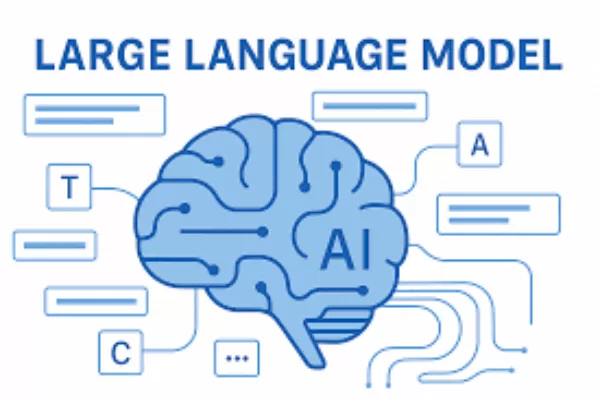
Optimizing LLMs for smarter, more efficient language AI
Some of the most well-known LLMs include ChatGPT-4, GPT-5 by OpenAI, Gemini, Claude, and LLaMA. They are all considered LLMs because they rely on large-scale language model technology.
What Is LLM Optimization?
LLM Optimization is a strategy aimed at improving a brand’s visibility and representation within AI-generated responses. It involves refining how large language models process, understand, and output information to make brand mentions more accurate, positive, and aligned with business goals.
In technical terms, LLM Optimization focuses on enhancing model performance, text generation accuracy, and bias handling, while also minimizing the environmental impact of model training and deployment.
In other words, it helps LLMs become not only faster and more efficient, but also more brand-aligned and user-centric in the responses they produce.
Why LLM Optimization Matters
Today, more users are skipping traditional Google searches and turning directly to AI tools like ChatGPT, Gemini, or Claude for answers. Instead of browsing multiple links, users receive instant, summarized responses synthesized from various sources.
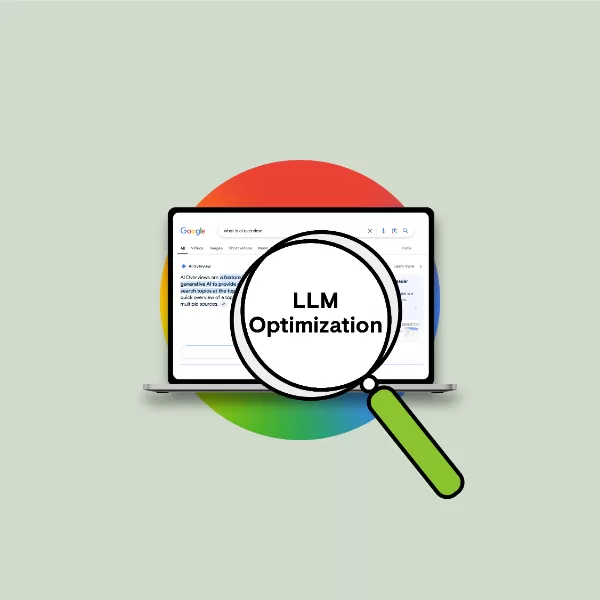
Fueling better AI answers through LLM optimization
Without proper LLM Optimization, your brand risks being overlooked or worse, misrepresented by AI responses.
Optimizing ensures your brand is correctly and positively referenced within AI-generated content, maintaining visibility where users are increasingly spending their attention.
As AI-driven traffic grows rapidly, LLM Optimization becomes a key strategy to sustain and expand your brand’s digital presence in this new search ecosystem.
5 Best LLM SEO Optimization Tools
To turn LLM Optimization from theory into measurable success, brands need practical tools, not just strategy. The following platforms represent the Best LLM SEO Optimization Tools, designed to help you monitor visibility, improve AI perception, and shape how LLMs present your brand across conversational environments.
Surfer
If you want to make your website “speak the same language” as both Google and large language models, Surfer is your go-to solution. Rather than guessing what works, this LLM SEO Optimization Tool translates search intent and NLP data into actionable writing guidance.
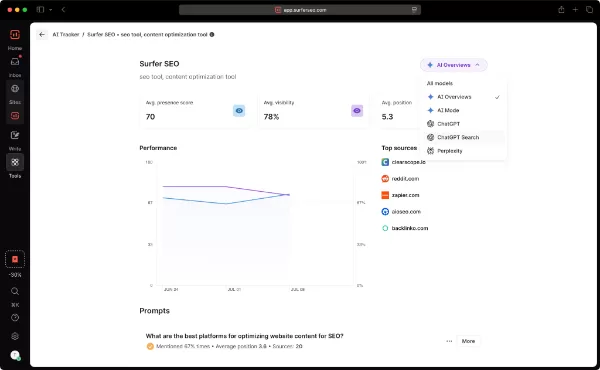
LLM-focused content insights powered by Surfer
Metrics be shown:
- Keyword NLP density & intent alignment
- Content relevance scoring (semantic structure)
- SERP-to-LLM visibility overlap
Pricing: From $29/month
Perfect for writers mastering LLM Optimization without losing SEO discipline. Surfer bridges the gap between algorithmic understanding and human creativity, ensuring every article resonates with both Google and AI-driven systems. For teams scaling up content across industries, it becomes the most reliable co-pilot for sustained visibility.
AthenaHQ
Unlike classic analytics tools, AthenaHQ doesn’t track clicks, it tracks conversations. Using AI-driven scraping, it identifies how often and in what context your brand appears in responses generated by ChatGPT, Gemini, or Claude. A must for anyone serious about Mastering LLM Visibility.
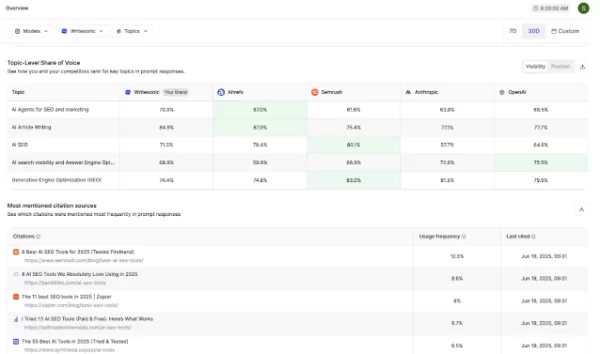
AthenaHQ reveals how LLMs mention your brand
Metrics be shown:
- Frequency of brand mentions in AI answers
- Sentiment and tone consistency
- Cross-platform comparison (AI vs Google SERP)
Pricing: Starts at $49/month
Ideal for PR teams tracking real-time LLM SEO visibility. Beyond monitoring mentions, AthenaHQ reveals why and how AI includes your brand in generated responses, allowing you to manage perception before it shapes public narrative. It’s a bridge between brand intelligence and AI-era storytelling.
Gumshoe
Think of Gumshoe as your forensic lab for LLM Optimization. It digs deep into how AI models interpret tone, authority, and trust signals, revealing hidden weaknesses that might cause your site to be ignored by AI-generated summaries.
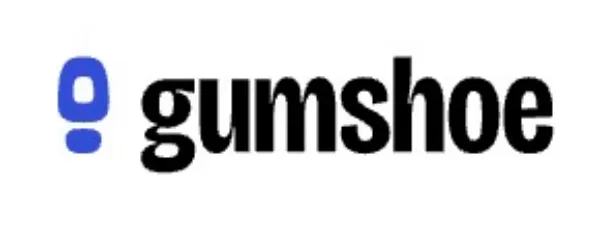
Gumshoe uncovers hidden weaknesses in LLM perception
Metrics be shown:
- AI trust & credibility index
- LLM readability insights
- Content entity coverage
Pricing: Custom enterprise plans
Best for editorial teams focused on improving AI discoverability. Gumshoe brings transparency to the black box of LLM Optimization, revealing the logic behind AI-driven recommendations. With these insights, brands can rewrite, restructure, and reposition content to earn stronger AI visibility scores.
Ahrefs Brand Radar
Ahrefs Brand Radar takes the backbone of SEO and extends it into the LLM Optimization era. Beyond backlinks and keywords, it shows how your digital authority affects AI model understanding, offering a clear view of brand influence within AI datasets.
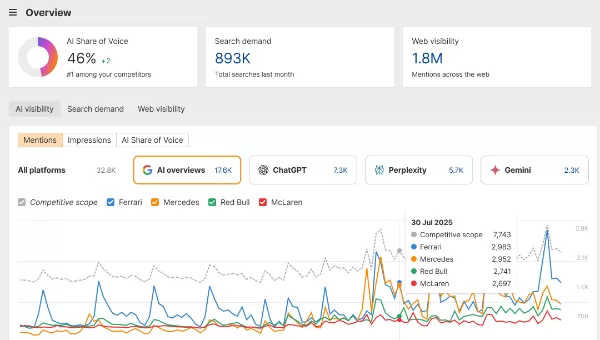
Measure brand impact within growing LLM search flows
Metrics be shown:
- AI brand citation frequency
- Backlink authority correlation with LLM ranking
- Visibility overlap between Google & AI models
Pricing: From $99/month
A must-have for marketers combining link-building with best LLM SEO optimization tool insights. Ahrefs Brand Radar provides the missing link between SEO authority and AI trustworthiness. With this data, teams can plan PR, backlink, and entity strategies that boost both Google rankings and AI inclusion two ecosystems now converging faster than ever.
Nightwatch
Nightwatch doesn’t just monitor rankings, it tracks evolution. This tool visualizes how LLM Optimization impacts your visibility within Google’s Search Generative Experience (SGE) and AI-driven discovery platforms, helping marketers anticipate where search is heading next.
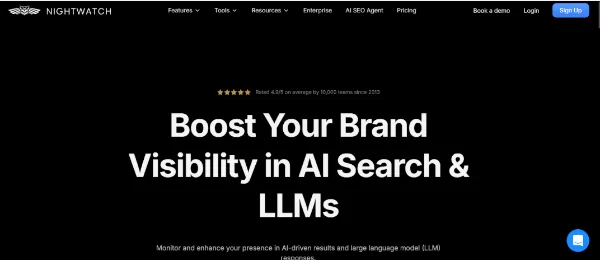
Monitor LLM-driven visibility shifts with Nightwatch
Metrics be shown:
- AI-first traffic movement tracking
- SERP-to-AI performance transition
- Long-term visibility index
Pricing: From $39/month
Designed for visionary brands adapting early to AI-first search ecosystems. Nightwatch doesn’t just track data, it reveals momentum. For teams embracing LLM Optimization, this tool provides the foresight to predict search shifts, helping brands lead the narrative rather than react to it.
How to Do LLM Optimization
LLM Optimization helps your brand become more recognizable, more quotable, and better represented in the natural-language responses generated by large language models.
Here are several practical ways to achieve this:
Proactively Earn Brand Mentions
Identify the websites in your industry that are frequently cited by LLMs. Then, collaborate or contribute content to these platforms to increase your brand’s exposure.
By doing so, your brand is more likely to appear in AI-generated responses that draw from those same data sources.
Commonly cited high-authority sites across multiple fields include:
- Quora
- YouTube
- NYTimes
- Travelandleisure
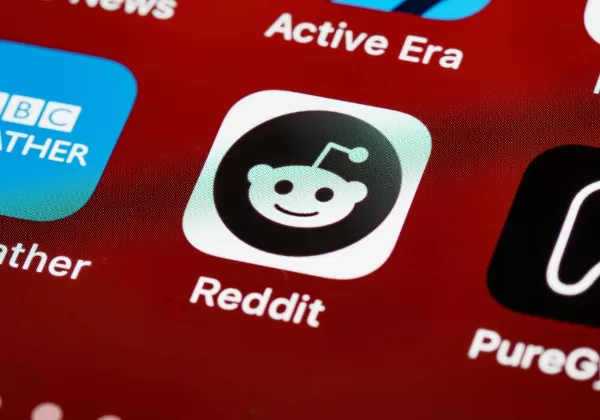
Boost LLM citations through trusted online platforms
Differentiate Your Brand
The key to standing out lies in your Unique Value Proposition (UVP), what makes your brand better or different:
- Superior product quality
- More competitive pricing
- Exceptional customer support
When you clearly communicate this UVP across your website, content, and media channels, LLMs can “learn” these distinctions and associate them with your brand during data training and retrieval.
LLMs don’t just read data, they evaluate trustworthiness, distinctiveness, and relevance.
Example:
If a user asks:
“Where can I buy affordable running shoes?”
and your brand message states:
“We provide running shoes 20% cheaper than market price with 24-hour delivery,”
Then, if this information is consistently published on credible websites, reviews, or press coverage, the LLM is far more likely to recommend your brand as the most relevant and valuable choice.
Tailor Content to Your Target Audience
In LLM Optimization, aligning your content with user intent and audience profiles is critical.
The more precisely your content matches user needs and behaviors, the higher the chance it will be recognized, quoted, or referenced by AI models.

Aligned content increases your chances of LLM mentions
Example:
If your target audience is students, and they search or ask for “affordable birthday gift ideas,” AI models like ChatGPT will tend to highlight brands offering budget-friendly, youth-oriented, and age-appropriate products.
This means:
The closer your content aligns with real-world user intent, the higher the probability your brand will appear in LLM-generated responses.
Even with solid strategies, LLM Optimization can falter when applied rigidly. Many brands mistake structure for understanding, overlooking how AI interprets context and credibility, leading to these most common LLM SEO pitfalls that limit brand visibility.
Pitfalls of LLM Optimization
Even well-planned LLM Optimization strategies can fall apart if misapplied. Below are the most frequent pitfalls that keep brands from achieving true visibility within AI-generated content.
- Over-Optimizing for Keywords: Treating LLMs like search engines often leads to keyword stuffing. Overemphasizing keywords limits contextual understanding and weakens how AI perceives brand authority.
- Ignoring Context and Entity Linking: Many forget that LLM SEO relies on context, not just text. Without consistent entity linking, AI models may fail to connect your brand to its niche or expertise.
- Over-Reliance on Automation: Overusing AI-driven content generation tools without human oversight can distort tone, accuracy, and emotional resonance, three key factors in Mastering LLM Optimization.

Common mistakes that weaken your LLM optimization
- Neglecting Human-Centric Messaging: AI prioritizes clarity and empathy in responses. Content written without human touch feels mechanical, reducing credibility in both user and AI perception.
- Misreading AI-generated Feedback: Many marketers treat AI output as validation instead of reflection. Failing to analyze why LLMs summarize content a certain way prevents real LLM Optimization improvement.
- Inconsistent Brand Identity: Frequent tone or messaging shifts confuse AI models. Maintaining consistent voice, language, and factual data helps strengthen brand recognition within AI ecosystems.
Ultimately, LLM Optimization is not about chasing algorithms but understanding how AI perceives meaning. Avoiding these pitfalls helps your brand communicate with precision, empathy, and authority, the true pillars of Mastering LLM SEO.
FAQs: Insights Beyond LLM Optimization Basics
How is LLM Optimization different from traditional SEO?
While traditional SEO focuses on ranking within search engines, LLM Optimization ensures your brand appears correctly and positively within AI-generated responses. It’s about being understood, not just indexed.
Can small or local businesses benefit from LLM SEO?
Even small brands can gain visibility by optimizing for relevance, credibility, and niche expertise. Mastering LLM SEO helps local businesses appear in AI-driven recommendations for specific products or locations.
Do LLMs favor big brands over smaller ones?
AI models favor structured, trustworthy data. Smaller brands that maintain consistent messaging and verified information can compete equally, especially when supported by Best LLM SEO Optimization Tools.
How often should businesses update their LLM Optimization strategy?
Since AI models evolve rapidly, reviewing and updating your LLM Optimization strategy every 3–6 months is ideal. This ensures your brand aligns with changing AI behavior, data sources, and prompt comprehension patterns.

Keep your LLM strategy updated to match evolving AI
What’s the next major trend after LLM Optimization?
The next evolution lies in multimodal optimization, combining text, image, and voice data to influence how AI systems perceive and present brands. Companies leading in LLM Optimization today will be best positioned for this shift.
Mastering LLM Optimization in 2025 With On Digitals
In the age of generative AI, LLM Optimization has become the new frontier of digital visibility. From mastering strategies and avoiding common pitfalls to leveraging data-driven insights, brands that understand how AI interprets meaning will lead the next phase of content discovery.
With years of experience in digital strategy and AI-driven marketing, On Digitals continues to guide businesses toward smarter, future-ready optimization. Through research, data insights, and creative execution, the agency empowers brands to stay visible and relevant in the evolving world of intelligent search.
Related blogs:
Read more
